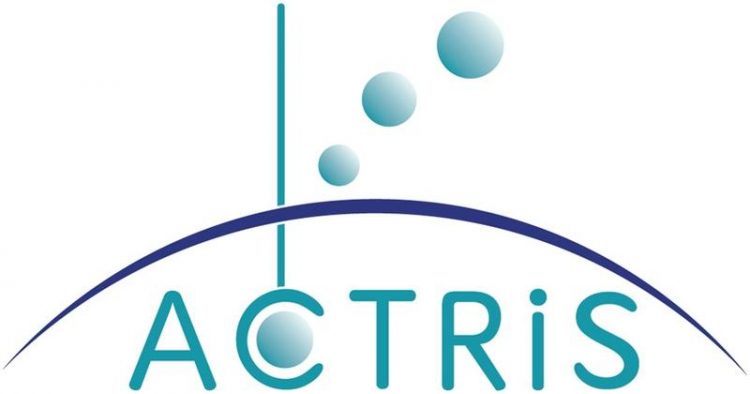Atmospheric research infrastructure ACTRIS to European updated research infrastructure roadmap

ACTRIS-Logo actris.eu
ESFRI led evaluation panels and working groups assessed in 2015 the candidate projects by their scientific excellence, pan-European relevance, socio-economic impact and the level of maturity. Special emphases were put to the member countries financial commitments to construct and operate the selected research infrastructures.
ACTRIS aims to secure the long-term observations and exploration of aerosols, clouds and short-lived trace gases at European level, and provide tools to tackle socio-economic challenges the society is facing today and in the future, including air quality and climate change.
ACTRIS will enable enhanced science by providing access to high-quality facilities, but it will also generate and disseminate knowledge, boost technological development, and create jobs for the benefit of the society. In the medium to long-term the research facilitated by ACTRIS will also positively impact on e.g. human health, climate resilience, protection from environmental hazards, and visibility.
In this respect, the role of ACTRIS in supporting policymakers is crucial. ACTRIS opens scientific data for wider use, and is in line with the European Commission priorities of Digital Single Market and Open Science. Besides data and science, the operations of ACTRIS will create both technical and expert jobs in all member countries.
ACTRIS consists of an extensive network of national top-level atmospheric research facilities, and central facilities – Head Office, Data Centre and five Calibration Centres – to coordinate and integrate the operations of the infrastructure.
When operational, ACTRIS will provide access to atmospheric data, research possibilities, instrument calibration and development, and education to a vast community of users; scientists, policymakers and the public and private sector.
The ESFRI roadmap proposal was led by Finnish delegation in spring 2015 with 21 participating countries. The value of ACTRIS at operational stage is estimated to be 450 million € with an annual turnover of up to 50 million €. Many countries have already expressed their political support and financial commitment to European ACTRIS, and 85 research performing organizations have committed their resources for the implementation of ACTRIS.
With the ESFRI status, ACTRIS will initiate the implementation of the pan-European ACTRIS operations and establishment of the organizational framework to provide services for the users. ACTRIS is expected to become fully operational in early 2020’s.
Media Contact
More Information:
http://www.tropos.de/All latest news from the category: Earth Sciences
Earth Sciences (also referred to as Geosciences), which deals with basic issues surrounding our planet, plays a vital role in the area of energy and raw materials supply.
Earth Sciences comprises subjects such as geology, geography, geological informatics, paleontology, mineralogy, petrography, crystallography, geophysics, geodesy, glaciology, cartography, photogrammetry, meteorology and seismology, early-warning systems, earthquake research and polar research.
Newest articles

A ‘language’ for ML models to predict nanopore properties
A large number of 2D materials like graphene can have nanopores – small holes formed by missing atoms through which foreign substances can pass. The properties of these nanopores dictate many…

Clinically validated, wearable ultrasound patch
… for continuous blood pressure monitoring. A team of researchers at the University of California San Diego has developed a new and improved wearable ultrasound patch for continuous and noninvasive…

A new puzzle piece for string theory research
Dr. Ksenia Fedosova from the Cluster of Excellence Mathematics Münster, along with an international research team, has proven a conjecture in string theory that physicists had proposed regarding certain equations….



